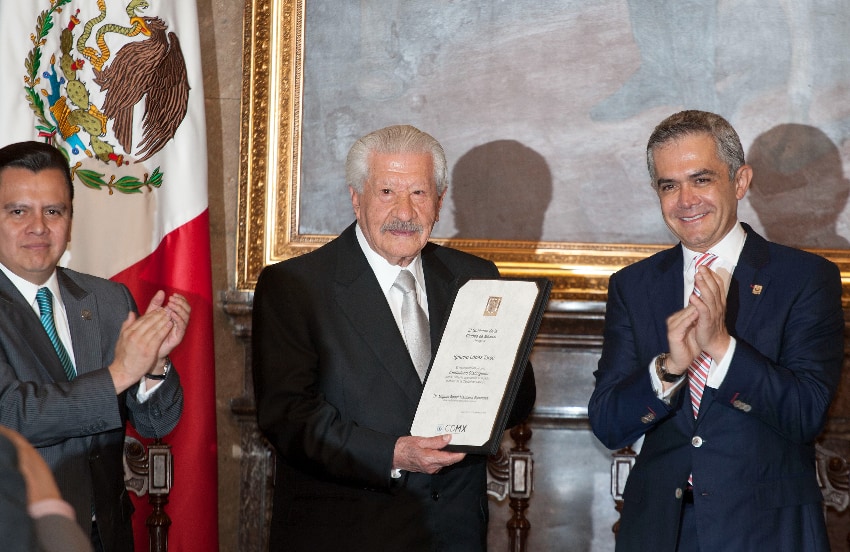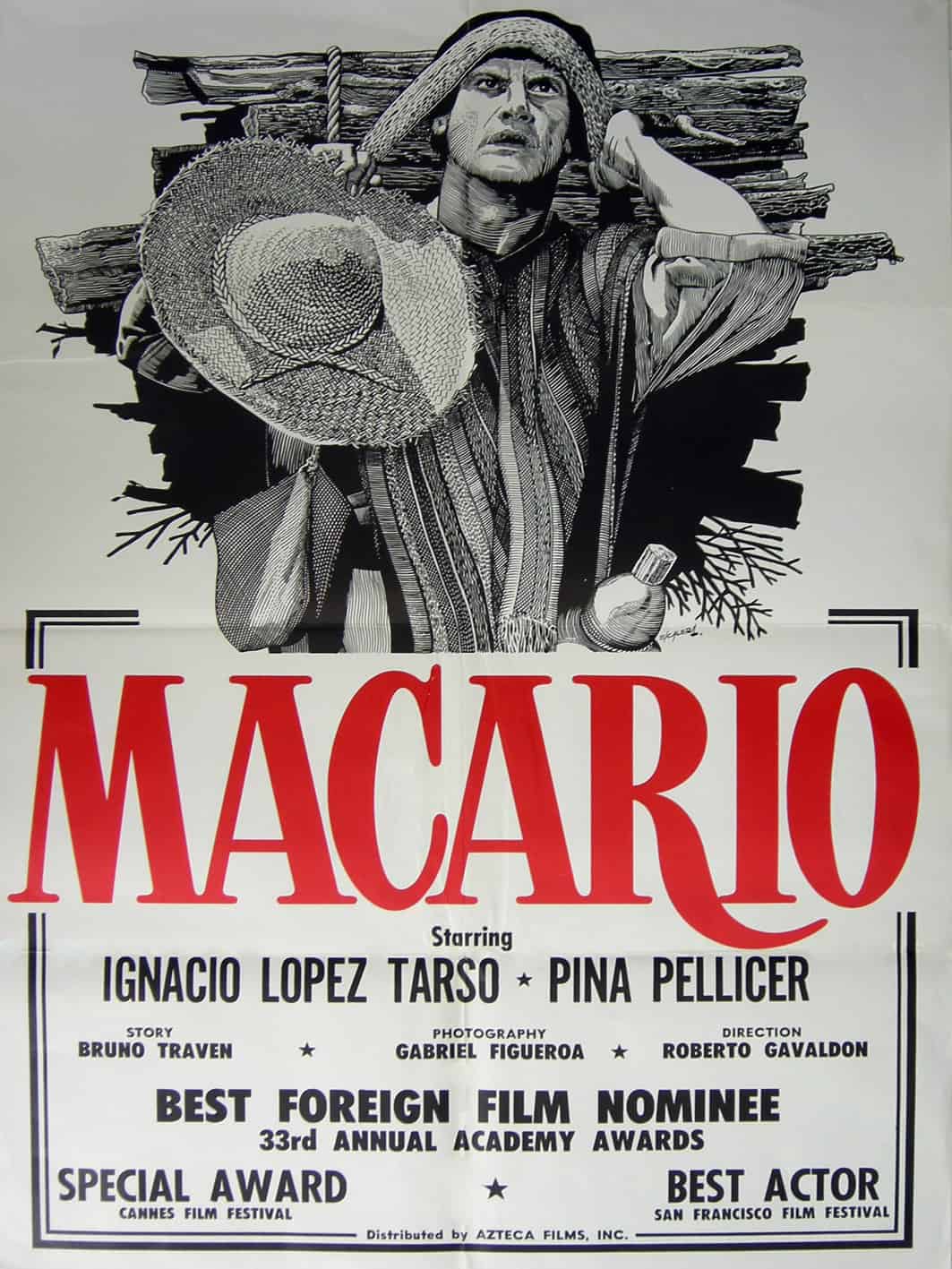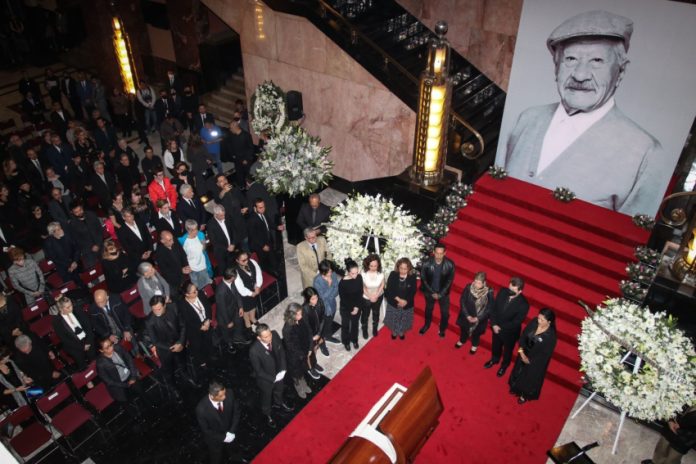Beloved Mexican actor Ignacio López Tarso, who starred as the hungry peasant Macario in the 1960 film of the same name, has died at age 98, his family reported over the weekend.
López Tarso was in approximately 50 films between 1954 and 1984, and had a long career in Mexican television, including more than 10 roles after he turned 80 — with two more in his 90s.

In 1973, he won an Ariel Award for best actor, the Mexican equivalent of an Academy Award, for his role in “Rosa Blanca”. This 1961 film was set in 1937, a year before national oil expropriation under Lázaro Cárdenas, and portrayed the story of a Mexican landowner’s battle with a U.S. oil company intent on acquiring his property. However, the film was banned in Mexico until 1972, apparently because the subject matter was contrary to the vision of then-president Adolfo López Mateos.
López Tarso received the Ariel de Oro lifetime achievement award in 2007 and was honored several times at the TVyNovelas Awards, which recognize the best television shows and telenovelas in Mexico. He also recorded a handful of albums on which he recited Mexican corridos, folk stories told in song, and had a long career in the theater.
He was one of the last surviving stars from the Golden Age of Mexican cinema, which spanned from 1930 into the 1960s. He shared the silver screen with luminaries such as María Félix, Dolores del Río and Silvia Pinal and was directed by legends such as Roberto Gavaldón and Emilio Fernández.
On its Twitter account, the Mexican Ministry of Culture lamented the death of “one of the greatest actors in Mexico.”

Citing his “enormous legacy” in a tweet expressing their “great sadness,” López Tarso’s family noted that they considered themselves “lucky” to have received his “advice, hugs, smiles, support and trust” over the years. “He died in peace and contentment,” they added.
His son Juan Ignacio Aranda, also an actor, told the media last week that his father had been hospitalized for pneumonia and an intestinal occlusion, according to the newspaper El Universal. Seven years ago, he had surgery to treat a tumor in his large intestine, reported the Latin Times.
Born in Mexico City in 1925 as Ignacio López López, he spent his childhood in several cities — including Veracruz, Hermosillo, Navojoa, Valle de Bravo and Guadalajara — because of his father’s job. As a teen, he began to train to be a priest but left the seminary at age 17 and a year later began military service. At 24, he made his debut on the stage.
López Tarso had an impressive physique and an elegant voice, which lent his characters a grandiose touch. At times moustachioed, he was regarded as having great range and versatility.
His role as the title character in “Macario,” a film regarded as a masterpiece of Mexican cinema, cemented his status as an icon. The dreamlike black-and-white movie — in which a starving peasant meets a series of mystical visitors, including Death himself — was the first Mexican feature to be nominated for an Academy Award for best foreign language film, and it also played at Cannes in 1960. Directed by Roberto Gavaldón, arguably the best Mexican director, “Macario” can be seen for free on YouTube with English subtitles. “Rosa Blanca,” also directed by Gavaldón, is available for free on YouTube, both dubbed in English with Spanish subtitles, or in Spanish with no subtitles.
Other award-winning and notable films he had big roles in include “La sombra del caudillo” (1960), “El hombre de papel” (1963), “Días de otoño” (1963) and “Pedro Páramo” (1967), with small roles in “Juana Gallo” (1961), starring the great María Félix, and “Nazarín” (1959), directed by the legendary Luis Buñuel.
In 1984, eight years after his final Mexican film, he starred as a town doctor in his only Hollywood film, “Under the Volcano,” the story of a British diplomat in Mexico on the eve of World War II, directed by John Huston and starring Albert Finney and Jacqueline Bisset.
López Tarso was also a PRI (Institutional Revolutionary Party) federal deputy in Congress from 1988 to 1991 and served as a leading member of actors’ guilds and unions.
With reports from El Sol de Puebla, Infobae, and Associated Press
